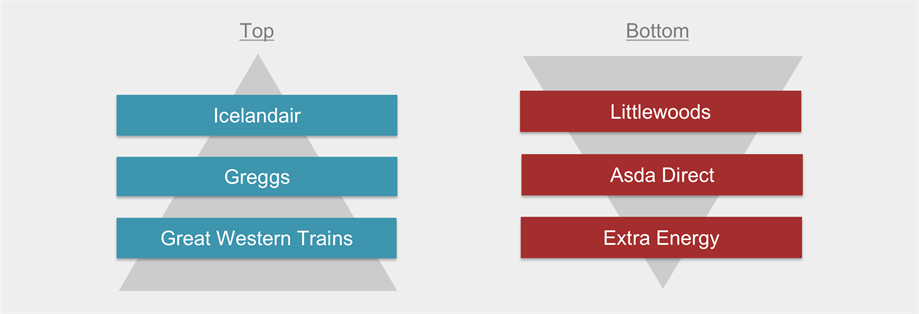Complaints: what customers really want (and how you can give it to them)
I met James two years ago when I first heard about Resolver. We thought it’d be interesting to get his thoughts on the current state of UK complaints handling. Here’s what consumers are telling him about the problems they face, the service saints and sinners as well as what you can do to make things better.
About Resolver
Resolver’s goal is to help consumers get results by making complaining quick and straightforward. It’s independent, free and focused on improving consumer rights and satisfaction. This year it’ll help customers make around 1 million complaints to both public and private sector organisations.
Resolver also helps organisations that want to improve their complaint handling. It lists companies from House of Fraser to Travelodge as clients and later this year will begin handling all UK parking ticket complaints. Started just four years ago, Resolver’s been so successful that it’s now associated with Martin Lewis and Money Saving Expert.
Complaints satisfaction benchmark
When customers make a complaint using Resolver they’re carefully profiled. Clients can then use this information to better understand what’s most likely to make a customer happy when resolving their complaint. After a complaint has been handled Resolver also measures customer satisfaction. This is used by clients to compare how satisfied their customers are with others in the same sector:

Top and bottom 3 organisations for complaints handling satisfaction. Source: Resolver satisfaction index March 2016.
If you’d like to find out where you are in Resolver’s complaints satisfaction index just drop us a line.
Top customer frustrations
Research shows that for every complaint voiced there are two that go unspoken because customers actually fear making a complaint. James says the main problems customers have with their complaints — and the reason why so many remain unspoken and continue to cause discontent — are:
1. It takes too long to resolve them
2. They take too much effort
3. They’re not handled effectively
5 things that’ll improve your complaints handling
When it comes to what you can do to improve, here’s what James suggests:
Make it quick and easy — a lot of unhappy customers don’t bother complaining because they fear the process. Make it easy for your customers to complain. And if they do, handle them quickly, effectively and keep the number of ’touches’ to a minimum.
Recognise the value — organisations can see complaints as costs, or lost customers that can’t be retained. But customers that have had their complaints resolved successfully remain loyal for longer and become advocates that are more likely to tell others. Also you won’t have to risk a social media sensationdamaging your hard earned reputation.
Let customers complain how they want — All interactions must be documented but let customers complain how they want to, whether that’s by phone, email or social media. And, try to find out how they’d like you to get back to them.
Let advisors make decisions — Cost fears mean that some organisations want a manager involved even if an offer of recompense is small. This can slow the process down and means that advisors armed with all the information they need to make decisions can’t do so.
Communicate better — Set customers’ expectations by letting them know their rights, what the complaints process is and how long it’ll take. Acknowledge every customer complaint or response and when you do speak or write to them be clear, concise and empathetic.


